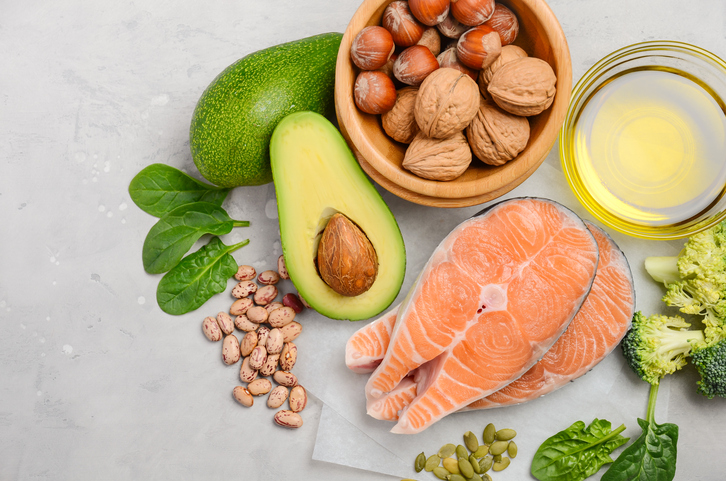What you should know about FAT
Fat has been the enemy for too long. Decades actually (since the 1950s). And still the research does not support that fat is the reason why most of America is obese, tired, and sick.
Not eating real food is one of the main reasons.
The over consumption of sugar, processed food, and low fat foods has largely made that possible. Consuming foods laden with hydrogenated oils and trans fats, too.
Not moving our bodies daily, also doesn’t help. Not prioritizing sleep and rest, doesn’t help.
Here’s how it started
All that fat fear mongering from the media and food industry led to a flood of low-fat, fat-free products to the market.
These foods often have to be processed and modified to strip the fat out and still make it taste good, have the right texture, and be shelf stable. Food engineers, hard at work.
So guess what happens when we do that to our food?
We are now eating food that is no longer in its whole, most healing form.
We lose nutrients and touch with that food’s true flavors.
Often fillers and additives are now in the picture. It’s more of a food product than real food, the way nature made it.
The nutrition facts panel can read lower calories, but the ingredient label now boasts other non-food ingredients to hold it all together.
Emphasis has too long been on the nutrition facts label, when we should really be concerned with what’s actually IN our food, and on the ingredient label.
We start to lose our way with our sense of taste and grow accustomed/addicted to these newly processed foods. Our taste buds go off kilter.
But when you take fat out, we miss out on that feeling of satiety and grounding.
We then eat more and more because we don’t feel very full AND our bodies are yearning for the nutrients that were missing.
We’re now over consuming food-like products, their additives that our bodies don’t quite know what to do with, and becoming addicted to them along the way. Ultimate fail.
And because they can sit on a shelf longer than real food, the food manufacturer can make high volumes of these products with low risk, and charge less money.
What a sweet deal for them.
In comes convenient, ‘tasty’, cheaper food that supposedly helps us lose weight because we’re eating less fat.
People quickly jumped on that fat free train and were all for into those 100 calorie packs of Oreo crisps… but pause for a moment and look around.
How did that work out for us?
Remember the charts and stats I shared last Wednesday evening around the steadily inclining rate of obesity, caloric intake, and disease in America over the last 40+ years?
Removing fat and messing with whole foods not only didn’t make us skinnier and healthier, but it’s making us sicker and more overweight.
I know some of you know this already and know the myths, especially if you’ve been to my classes before.
Many of us have heard how bad fat is for so darn long though, that it will take some intentional mindset shifting and rewiring. That’s okay.

|
